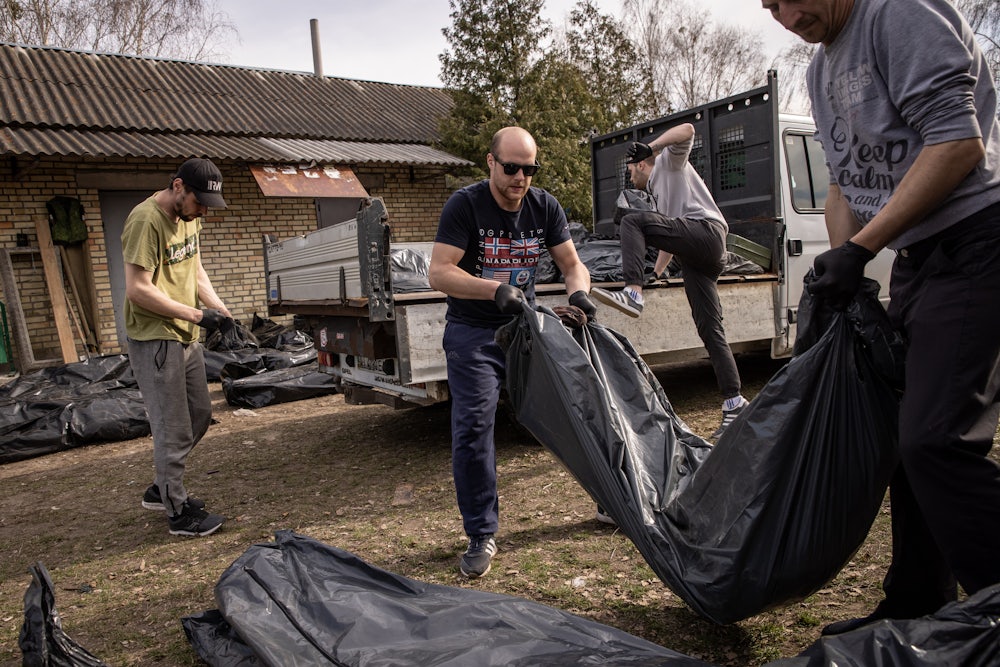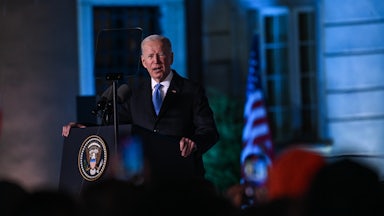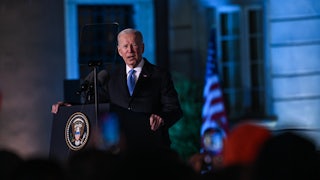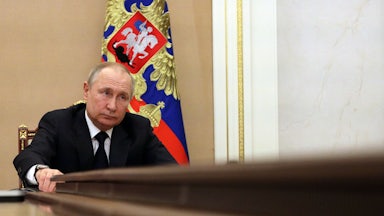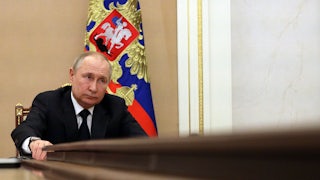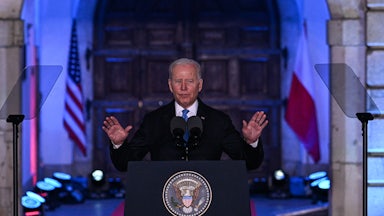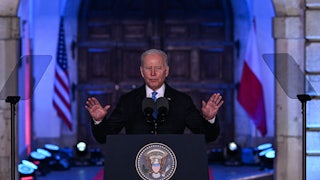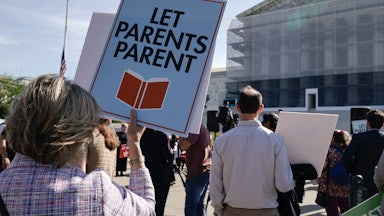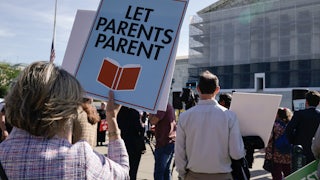Lifeless and broken bodies sprawled over toppled bicycles. Corpses with hands tied behind their backs strewn across a once peaceful cityscape. A bloodied shirtless man, stripped of his dignity, stuffed into the bottom of a sewage pipe.
Since these horrific images emerged from the town of Bucha, after its recapture by Ukrainian troops, they have further galvanized global public opinion against Russia. Last month, the State Department accused the Russian military of committing war crimes in Ukraine. Now we have the proof.
According to Bucha’s mayor, 280 bodies already have been buried in mass graves. The expectation is that as more Ukrainian towns are liberated, the world will be assaulted with new images of Russia’s depravity.
While the evidence of Russian barbarity has been clear for some time, the visceral and grotesque pictures from Bucha have the potential to be a transformative moment that could lead to permanent Russian isolation, no matter how (or if) the Ukraine war is resolved.
“Bucha has changed things,” says Arthur Goldhammer, senior affiliate at the Center for European Studies at Harvard University. “People are now speaking of war crimes rather than simply unjustified aggression. It’s added a new dimension” to the conflict.
With this greater isolation, however, will come more trauma for the international economy—increased poverty and less global food security, both in Russia and around the world. Levying sanctions on Russia may be a necessary response to Putin’s brutality, but we should not be blind to the ultimate consequences.
Not surprisingly, the international response to Bucha has been one of swift and harsh condemnations matched with calls for new measures to punish Russia.
Ukraine’s foreign minister, Dmytro Kuleba, immediately called for an embargo on Russian oil, gas, and coal; closing all ports to Russian vessels and goods; and disconnecting all Russian banks from the SWIFT banking network.
President Biden, who noted that he had previously been criticized for calling Putin a war criminal, reminded reporters that “the truth of the matter, you saw what happened in Bucha: He is a war criminal.”
On Wednesday, his administration announced new sanctions on Russia that targeted two of Putin’s adult daughters and sanctioned Russia’s largest financial institution and largest private bank. Biden also signed an executive order banning all new investments in Russia by American citizens.
French President Emmanuel Macron, who faces his country’s voters this weekend and is in a tight race for reelection, also called for new sanctions on Russia, including bans on the country’s coal and oil exports. Germany’s defense minister, Christine Lambrecht of the Green Party, raised the possibility of ending Russian oil imports. So far Germany has refused to endorse such a major step because of its deep reliance on Russian natural gas imports. What seemed unimaginable a few weeks ago is now increasingly on the table. The talk in Germany on ending natural gas exports “is becoming ever more insistent,” says Goldhammer. “The possibility is increasing because the winter is coming to an end. I think the Germans are prepared to do it.”
Even countries that up to now have held their powder on openly criticizing Russia, like Israel and India, broke their silence and condemned Russia’s actions.
So not only will there be a tightening of the economic and diplomatic vise on Moscow, but the images from Bucha make it increasingly unlikely that sanctions on Russia will ever be lifted—even if Moscow retreats from Ukraine or signs a ceasefire agreement with Russia. The political pressure on Western governments to maintain sanctions on the “Butcher of Bucha” may be too strong to resist.
The damage to the Russian economy is already profound. As Julia Friedlander, the director of the Economic Statecraft Program at the Atlantic Council, put it to me, “We’ve destroyed the Russia economy. We’ve destroyed their export capability, and we’ve crippled their technology sector.” She added that the Russian economy “will be uninvestable for a decade.” In just under two months, the U.S. and its Western allies have, in effect, reversed decades of economic progress in the world’s eleventh-largest economy.
The larger implications for the global economy—while not as severe—should not be underestimated. Already, there are predictions that the current sanctions regime could cut 2022 economic growth in the euro bloc in half and shave half a point off expected growth in gross domestic product in the U.S.
According to research done by the Center for Global Development, increases in energy and food prices could plunge 40 million people around the world into poverty.
Lebanon, which is no stranger to political upheaval incited by economic turmoil, relies on Russia and Ukraine for 90 percent of its wheat and cooking oil imports, as well as a significant amount of grain. Fuel prices have skyrocketed, and the tiny country currently has one of the highest food inflation rates in the world. By some estimates, Lebanon may only have enough wheat to last until mid-May.
This is just the situation with the current sanction regime. If more sanctions are piled on top, things could get even more precarious.
And lest we forget, higher food and oil prices can have a destabilizing effect on global politics. There is some evidence that increases in the cost of basic foodstuffs helped fuel the Arab Spring uprisings in 2011.
The response to Bucha may also make it more difficult to end the war in Ukraine. Russia has signaled that it wants any diplomatic concessions to Ukraine—and a withdrawal of military troops—to be conditioned on sanctions relief. That could prove difficult for Western leaders, who will undoubtedly find themselves under growing political pressure to keep them in place.
All this could change if Putin is somehow removed from power, but that is unlikely to occur. The war in Ukraine remains relatively popular among Russians. Those who are outraged by it are voting with their feet and seeking to leave the country.
Western sanctions may be taking a fearsome toll on the Russian people, but there’s little evidence to date that they have shifted Putin’s strategic calculus at all. While it’s possible that piling on more sanctions will get Putin to back down, it seems just as likely that he will continue the war until he can find a way to declare victory.
As Friedlander pointed out to me, “If you put all your eggs in the economic pressure basket, you don’t have much of a choice when it comes to lifting sanctions.” Anything short of keeping them in place will raise the charge that the U.S. and its Western allies are going soft on Putin.
Beyond the political considerations, the West has staked its support for Ukraine—and its credibility in responding to clear violations of international norms—on what amounts to economic warfare against Russia.
Now that we have firsthand evidence of Russian war crimes, it will only further embolden the West to keep up the pressure. Putin’s actions have left America and Europe with few good options. As awful a price as sanctions are exacting, the alternative—leaving Putin unpunished—would arguably be worse. But we cannot blind ourselves, either, to the devastating impact on others of seeking to hold Putin accountable. In its particular horror—and the response to it—Bucha could be a major turning point … in piling more horrors upon those already taking place in Ukraine.
